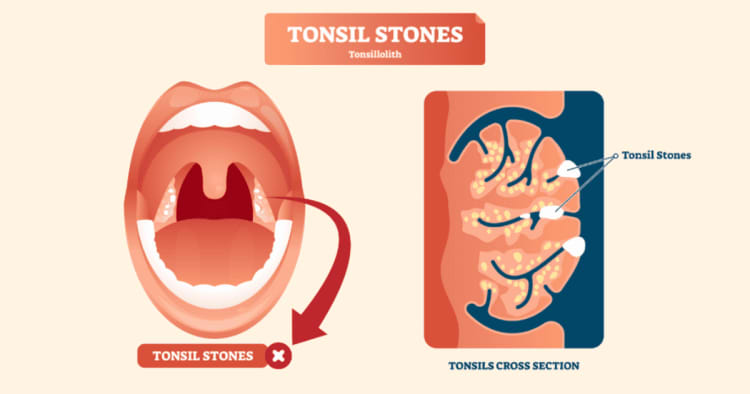Tonsil stones or tonsilloliths are common. They normally form from food or other debris which gets trapped in the tonsil crevices. They often are bilateral and are seen often as whitish, sometimes yellowish smelly small masses.
Apart from causing bad breath; they are generally harmless but may indicate issues with oral hygiene or the state of the microenvironment in the throat. Tonsil cancers are usually one-sided and they frequently present with enlargement or asymmetry of one tonsil.
Apart from being larger on one side; you could end up with:
- Blood-stained saliva
- A persistent ulcer that does not heal
- Pain
- Difficulty chewing
- Bad breath
- Lump in the neck.
If you are unsure please see your ENT doctor for an assessment.

